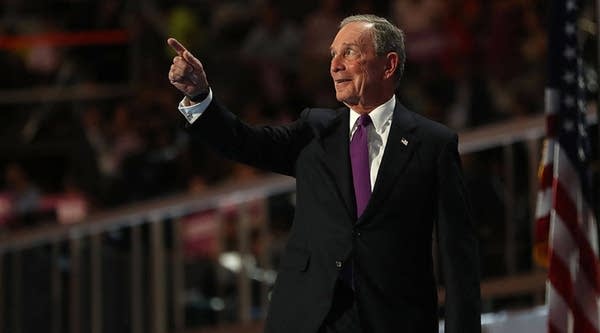Billionaire donations are driving midterm spending
High net worth giving is making this midterm campaign one of the most expensive ever.

The midterms are just a couple of weeks away, and so far this cycle, we’ve seen record amounts of spending on congressional candidates. The Center for Responsive Politics projects that $5 billion will be spent on the 2018 midterms — that would be more than the amount spent on President Barack Obama’s first midterms in 2010, and more than the congressional spending during the 2016 election.
One of the reasons there’s so much money flowing into these midterm elections? It’s because billionaires are lavishing more of their cash on politicians.
“This is something that arose out of enormous fortunes being made over the last few decades,” said Stanford political scientist Adam Bonica.
He recently found that the total wealth of the Forbes 400 jumped eleven fold since 1982, and the amount wealthy people spend on politics has gone up in proportion.
And while that money has historically come from wealthy conservatives, Bonica said that’s changing. Conservative candidates have earned more billionaire donations so far, but data from the Center for Responsive Politics show Democrats are catching up.
Bonica said these days, the billions are being made these in places like liberal Silicon Valley. Dustin Moskovitz, the billionaire Facebook co-founder, and Reid Hoffman of LinkedIn have both contributed millions to Democratic campaigns this year.
Traditional conservative billionaire donors are still giving generously. The casino mogul Sheldon Adelson and his wife have given $87 million to conservative groups and candidates so far this election. He’s a longtime supporter of Republicans and pro-Israel issues. After giving Donald Trump $25 million for his election, Adelson watched from the front row as the president celebrated the opening of an embassy in Jerusalem.
Others say the polarized political climate over the last two years has led more people in general to contribute.
“This is an emotional need for people to engage,” said Jenna Narayanan, vice president of development at NextGen America, a political group run by Tom Steyer, one of the biggest Democrat donors so far this election.
Steyer’s known for his controversial ad campaign to impeach the president, which hasn’t been uniformly popular with Democrats. Steyer’s political groups have also been getting attention for spending $110 million dollars on causes like clean energy and youth voter turnout this year.
East Coast billionaires are spending a lot, too. Boston-based hedge fund manager Seth Klarman recently announced he’d donate $20 million to help elect Democrats, after years of supporting the GOP.
Former New York City Mayor Michael Bloomberg pledged $100 million to help elect Democrats, which could prove useful as Bloomberg eyes a Democratic presidential bid in 2020.
And that’s just the money we know about.
“We’re seeing the spending side but we don’t necessarily know who is actually behind it, in a lot of the cases,” said Anna Massoglia, who researches so-called “dark money” at the Center for Responsive Politics.
A huge chunk of the spending goes to advertising, and depending on what the ads say, their funders don’t always have to be disclosed.
Massoglia said Democrats are collecting more “dark money” from donors in recent years, perhaps to avoid the stigma associated with big money in politics. But still, she said high profile billionaires tend to operate in the open.
“As they get more name recognition, their groups at least get more disclosure, whether that be us piecing together the puzzles, or their reaction to that being that they do start disclosing a bit more,” Massoglia said.




